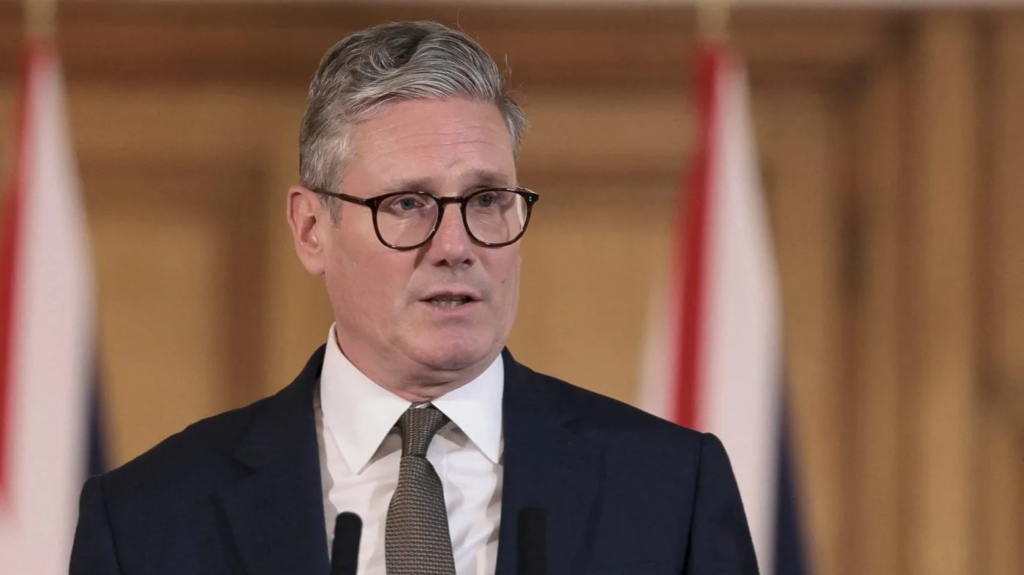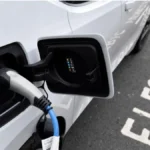- UK eases EV rules to reduce pressure on automakers after 25% U.S. tariffs spark global trade tension.
- Hybrid vehicle sales extended to 2035, offering carmakers and fleets more transition time.
- Industry voices mixed reactions, with leaders calling for stronger consumer incentives and EU policy alignment.
Britain is rolling back parts of its Zero Emission Vehicle (ZEV) Mandate in a bid to protect its auto industry from the fallout of new 25% tariffs on car imports imposed by former U.S. President Donald Trump.
“We are absolutely seized of the fact that this government needs to do absolutely everything it can to shelter British businesses,” said UK Transport Minister Heidi Alexander.

Strategic Shift
The UK government confirmed:
- Reduced fines for missing EV targets.
- Exemption for micro-volume manufacturers like Aston Martin, Bentley, and McLaren.
- Extension of hybrid sales to 2035 (e.g., Toyota Prius, Nissan e-Power).
- £2.3B support package for EV manufacturing and adoption.
- No change to the 2030 phase-out date for new petrol and diesel cars.
- Over £6B in private investment pledged for EV chargepoint infrastructure.
Prime Minister Keir Starmer noted: “The world has fundamentally changed,” adding that securing a trade deal with the U.S. remains a top priority.

U.S. Tariff Fallout
U.S. tariffs have hit UK automakers hard, especially those selling high-end models to the U.S.—the UK’s second-largest export market after the EU.
Jaguar Land Rover paused U.S. shipments for a month, citing the need to “mitigate the costs of the tariffs.”
Last year alone, 1 million British-made cars worth £7.6B ($9.79B) were exported to the U.S.
RELATED ARTICLE: Uber and BYD Partner to Deploy 100,000 Electric Vehicles Globally
Industry Response: Mixed Signals
Mike Hawes, CEO of UK auto group SMMT, praised the changes but called for broader intervention:
“Given the potentially severe headwinds… greater action will almost certainly be needed to safeguard our industry’s competitiveness.”

Philip Nothard, Chair of the Vehicle Remarketing Association, welcomed the flexibility:
“There has been a general recognition that existing targets were proving unrealistic… residual values are extremely poor and there are much greater volumes of EVs heading to the used market.”

Peter Golding, MD of FleetCheck, criticized the move:
“By allowing diesel and hybrid vans to stay on sale until 2035, the government is potentially giving fleet operators an excuse to continue using ICE vehicles.”

Sue Robinson, CEO of the National Franchised Dealers Association, warned of lagging behind Europe:
“The UK remains the most aggressive regime for the EV transition… it is vital that more incentives are available.”

Ian Plummer, Commercial Director at Auto Trader, called for consumer support:
“At this critical moment… ministers should underpin consumer demand with tax breaks, such as cutting VAT on public charging.”

Russell Olive, UK Director at Vaylens, stressed infrastructure urgency:
“Fleets can’t steer through uncertainty alone… continued investment in reliable, easy-to-manage charging systems is essential.”

Looking Ahead
While the softened rules give manufacturers room to adapt, long-term competitiveness will depend on deeper structural reforms, consumer incentives, and alignment with EU standards.
Executives across the industry remain clear-eyed on the stakes: without stronger demand signals and supply chain resilience, EV adoption could stall just as global competition intensifies.
Follow ESG News on LinkedIn
The post UK Softens EV Mandate to Shield Auto Industry From Trump Tariffs appeared first on ESG News.
